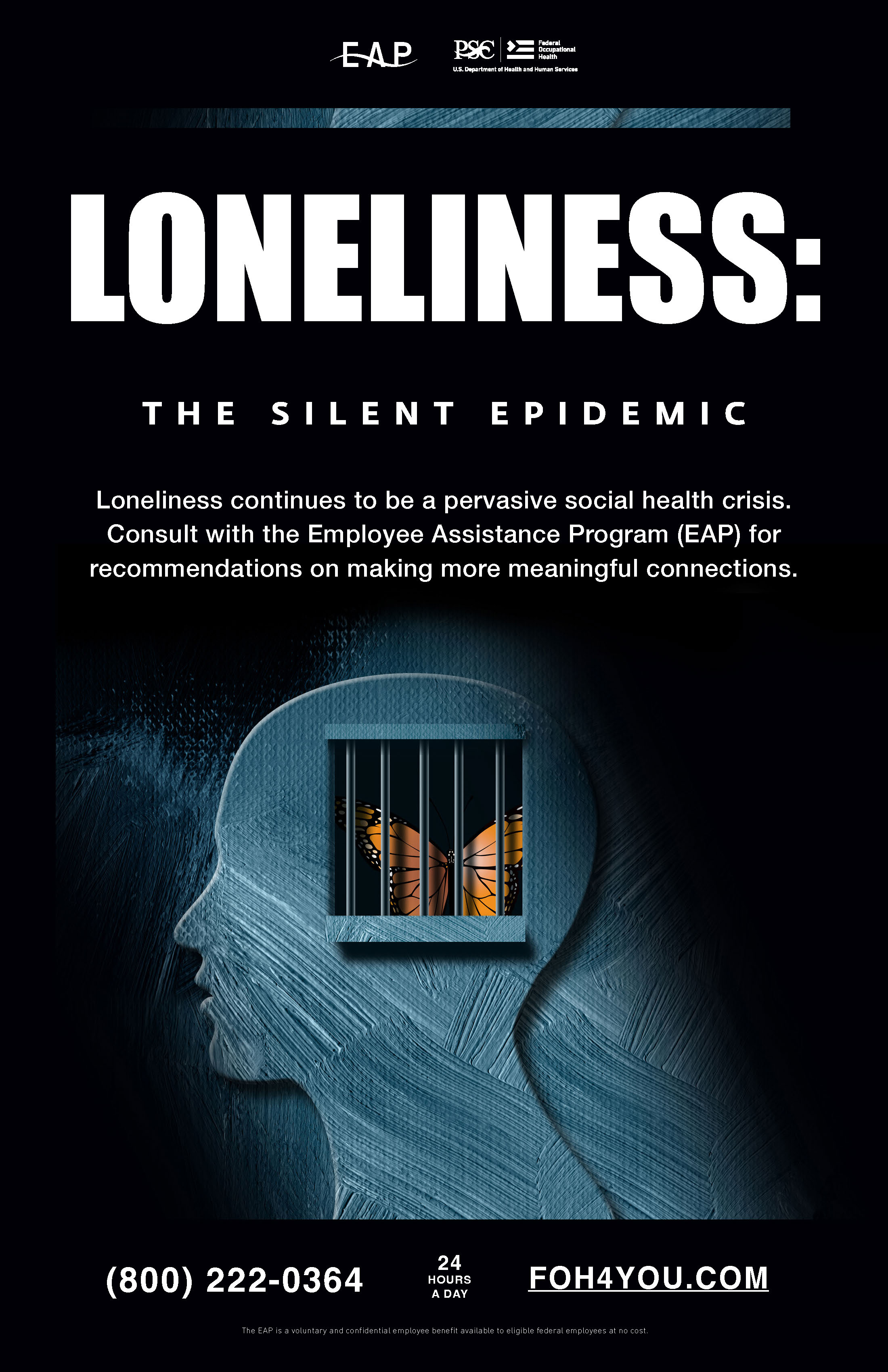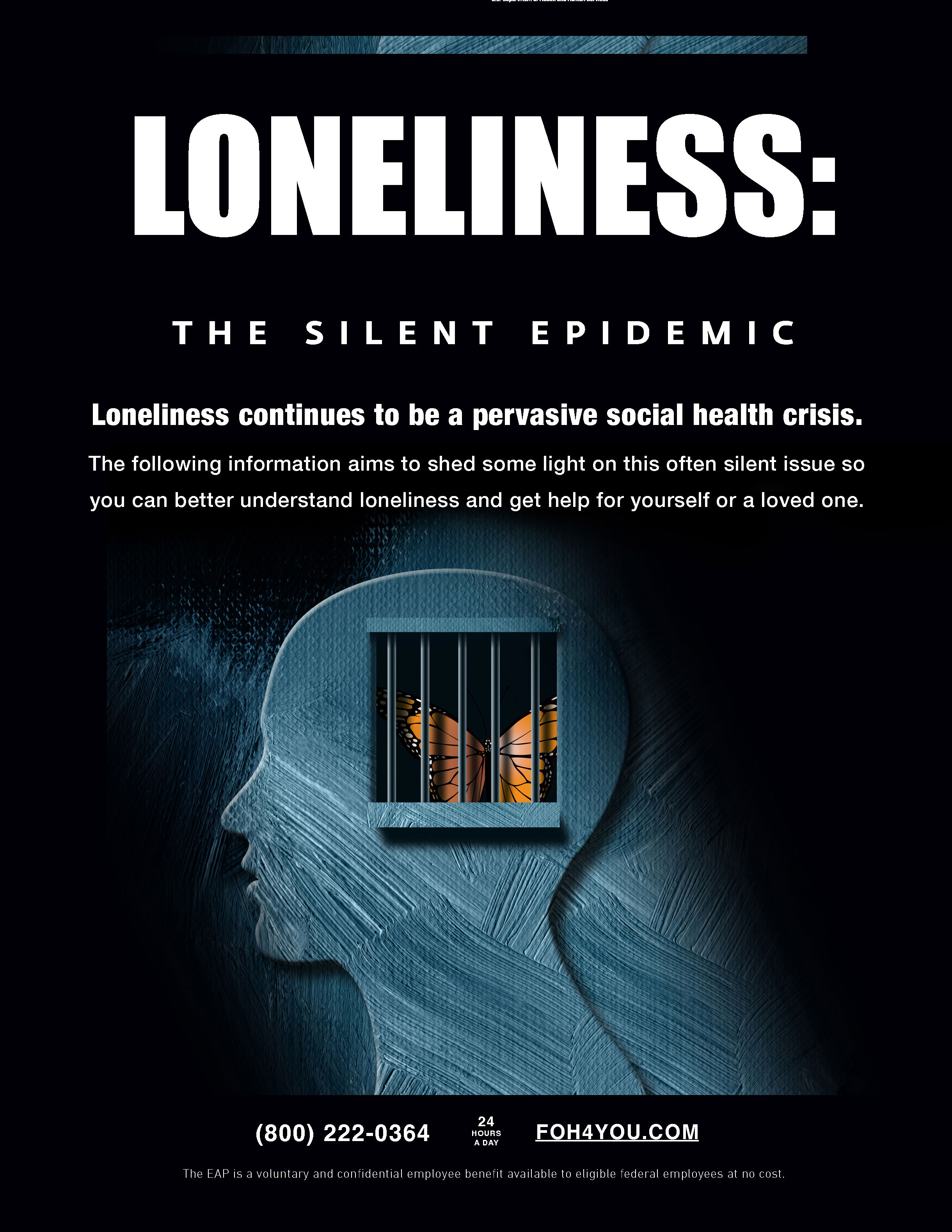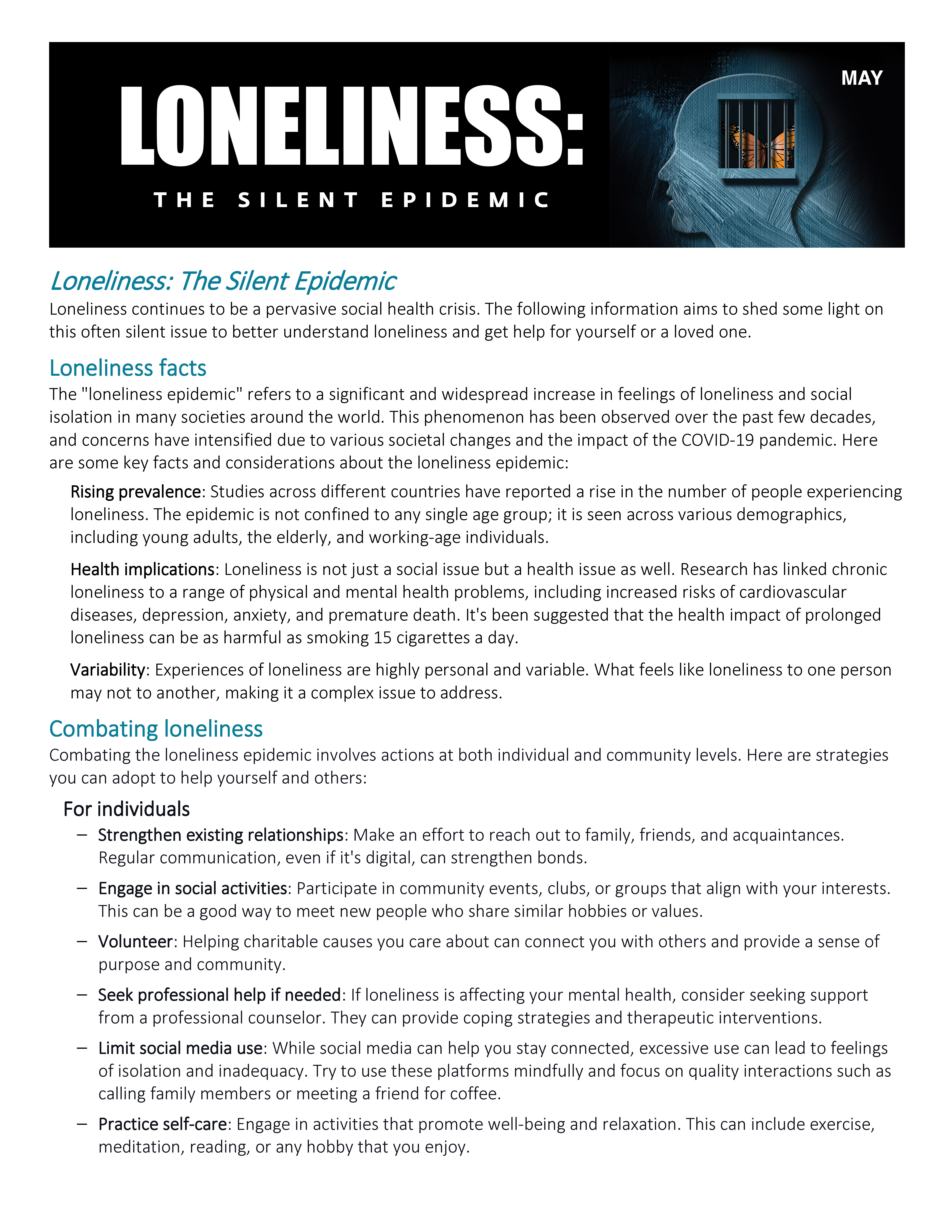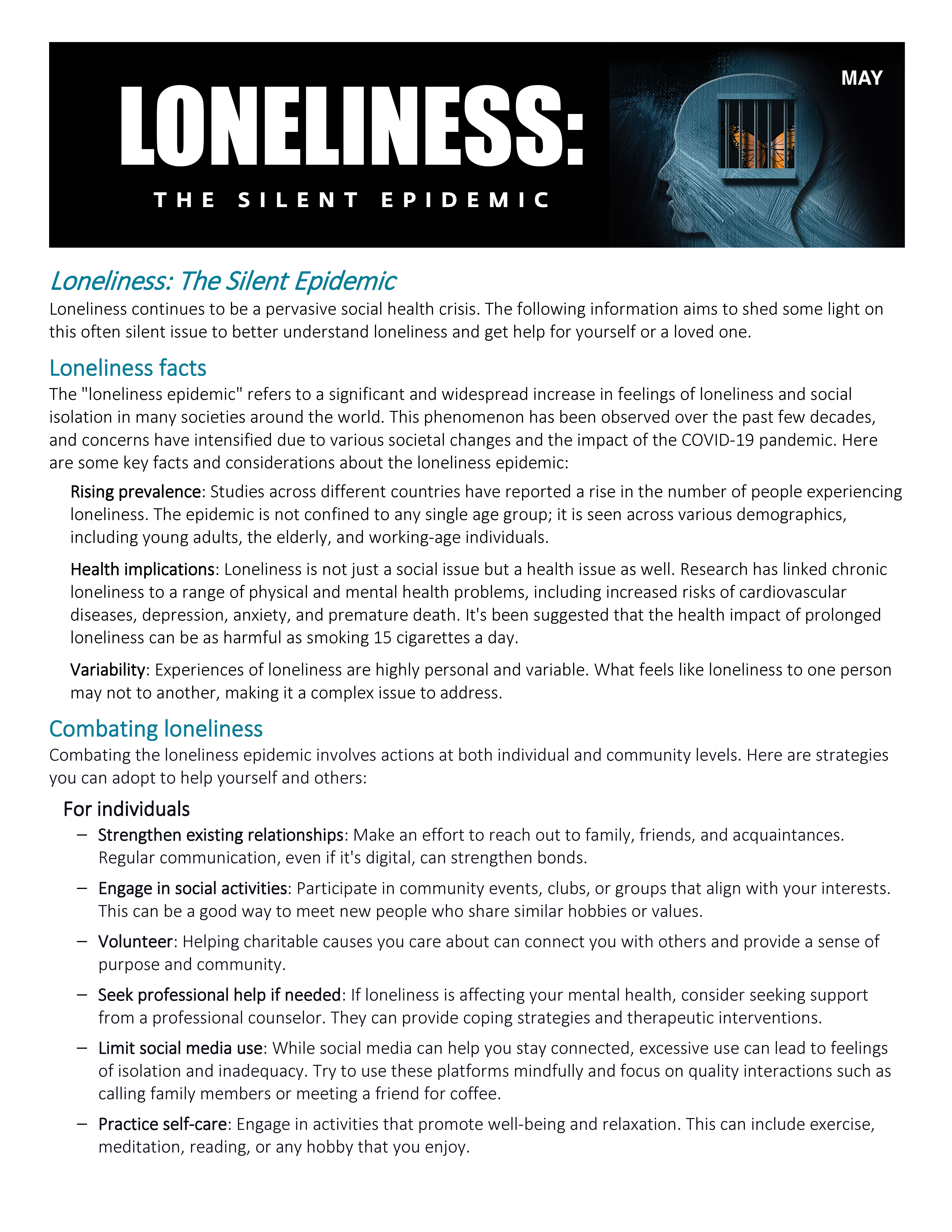
Loneliness continues to be a pervasive social health crisis. The following information aims to shed some light on this often silent issue to better understand loneliness and get help for yourself or a loved one.
Loneliness facts
The "loneliness epidemic" refers to a significant and widespread increase in feelings of loneliness and social isolation in many societies around the world. This phenomenon has been observed over the past few decades, and concerns have intensified due to various societal changes and the impact of the COVID-19 pandemic. Here are some key facts and considerations about the loneliness epidemic:
- Rising prevalence: Studies across different countries have reported a rise in the number of people experiencing loneliness. The epidemic is not confined to any single age group; it is seen across various demographics, including young adults, the elderly, and working-age individuals.
- Health implications: Loneliness is not just a social issue but a health issue as well. Research has linked chronic loneliness to a range of physical and mental health problems, including increased risks of cardiovascular diseases, depression, anxiety, and premature death. It's been suggested that the health impact of prolonged loneliness can be as harmful as smoking 15 cigarettes a day.
- Variability: Experiences of loneliness are highly personal and variable. What feels like loneliness to one person may not to another, making it a complex issue to address.
Combating loneliness
Combating the loneliness epidemic involves actions at both individual and community levels. Here are strategies you can adopt to help yourself and others:
- For individuals
- Strengthen existing relationships: Make an effort to reach out to family, friends, and acquaintances. Regular communication, even if it's digital, can strengthen bonds.
- Engage in social activities: Participate in community events, clubs, or groups that align with your interests. This can be a good way to meet new people who share similar hobbies or values.
- Volunteer: Helping charitable causes you care about can connect you with others and provide a sense of purpose and community.
- Seek professional help if needed: If loneliness is affecting your mental health, consider seeking support from a professional counselor. They can provide coping strategies and therapeutic interventions.
- Limit social media use: While social media can help you stay connected, excessive use can lead to feelings of isolation and inadequacy. Try to use these platforms mindfully and focus on quality interactions such as calling family members or meeting a friend for coffee.
- Practice self-care: Engage in activities that promote well-being and relaxation. This can include exercise, meditation, reading, or any hobby that you enjoy.
- Adopt a pet: Pets can provide companionship and unconditional love, which can significantly reduce feelings of loneliness.
- For communities and society
- Promote community events: Help organize community events regularly that cater to various interests and demographics, encouraging participation from all community members.
- Support vulnerable populations: Help and advocate for populations at higher risk of loneliness, such as older adults, people with disabilities, and those living alone.
- Encourage inter-generational interaction: Lead efforts that bring together younger and older generations to promote understanding, reduce stereotypes, and foster connections.
- Leverage technology positively: Use technology to create meaningful connections, such as virtual meetups.
- Awareness and education: Increase awareness about the impact of loneliness on health and well-being by educating others on how to build and maintain social connections.
- Research and policy initiatives: Support research on loneliness and its solutions, such as urban design that promotes social interaction and policies that address social inequality.
Addressing the loneliness epidemic requires a multifaceted approach, including enhancing social support systems, creating more opportunities for meaningful social interactions, and addressing the societal factors that contribute to social isolation.
Download the Campaign
|
If you or someone you care about needs additional loneliness support, contact your Employee Assistance Program (EAP). Consultants are available 24 hours a day, seven days a week, to assess your needs and offer resources and guidance. 24 HOURS A DAY
The EAP is a voluntary and confidential employee benefit available to eligible federal employees at no cost. |







